Nuovo appuntamento dal 20 al 22 marzo 2024, alla Fortezza da Basso di Firenze, con Didacta Italia, il più importante evento fieristico dedicato all’innovazione del mondo della scuola, giunto alla settima edizione. Grazie alla presenza di istituzioni e aziende, la Fiera rappresenta un’importante occasione di dibattito sul mondo dell’istruzione tra enti, associazioni, imprenditori, docenti, dirigenti scolastici e formatori.
Didacta Italia è organizzata da Firenze Fiera con la partnership scientifica di Indire e in collaborazione con Didacta International. Anche quest’anno il Cnr – oltre a patrocinare l’evento – è presente, grazie al coordinamento dell’Unità Comunicazione, con uno stand istituzionale caratterizzato dalla presenza di 24 differenti gruppi di ricerca e più di 70 tra ricercatrici e ricercatori pronti ad incontrare le migliaia di docenti, dirigenti, formatori e formatrici interessati a conoscere le iniziative Cnr rivolte al mondo della scuola su tutto il territorio nazionale. Anche i fumetti scientifici Comics&Science di Cnr Edizioni saranno protagonisti di questa edizione. Il programma scientifico della manifestazione conta ben 7 workshop immersivi e 14 seminari del CNR: risultato che ben evidenzia la ricchezza dell’offerta multidisciplinare dell’Ente anche in ambito educativo.
Questa edizione sarà anche l’occasione per presentare la prima edizione del catalogo “Il Cnr è a scuola” che raccoglie una selezione delle iniziative divulgative ed educative al momento attive in tutta Italia, destinate a vari ordini e gradi di scuole per l’anno scolastico in corso e per l’anno scolastico 2024-2025. Uno strumento facile da consultare che offre una panoramica completa sui progetti didattici della rete scientifica dell’Ente, con la possibilità di selezionare le proposte in base alla vicinanza geografica, ai temi trattati, all’ordine e grado scolastici e alle diverse tipologie: attività laboratoriale, conferenza/seminario, kit didattico, applicazione digitale o prodotto editoriale, visita a una sede Cnr, iniziativa integrata, PCTO, formazione docenti. L’Unità Comunicazione ha realizzato questo prodotto, edito da Cnr Edizioni, grazie alla collaborazione della rete dei referenti comunicazione e stampa del Cnr attivo sul territorio nazionale.
Di seguito gli istituti protagonisti di workshop e seminari inseriti nel programma scientifico della manifestazione: Istituto di fisiologia clinica di Pisa (Cnr-Ifc), Istituto di chimica dei composti organomettalici di Pisa (Cnr-Iccom), Istituto di informatica e telematica di Pisa (Cnr-Iit), Istituto di linguistica computazionale di Pisa (Cnr-Ilc), Istituto di geoscienze e georisorse di Pisa (Cnr-Igg), Istituto nazionale di ottica di Firenze (Cnr-Ino), Istituto di fisica applicata “Nello Carrara” di Firenze (Cnr-Ifac), Istituto di scienza e tecnologia dei materiali ceramici di Faenza (Ravenna) (Cnr-Issmc), Istituto di scienze marine di Lerici (La Spezia) (Cnr-Ismar), Istituto per la tecnologia delle membrane di Rende (Cosenza) (Cnr-Itm), Istituto di tecnologie didattiche di Palermo(Cnr-Itd), Istituto per le applicazioni del calcolo “M. Picone” di Roma (Cnr-Iac), Istituto sull’inquinamento atmosferico di Roma (Cnr-Iia), Istituto di fotonica e nanotecnologie di Roma (Cnr-Ifn), Istituto di studi giuridici internazionali di Roma (Cnr-Isgi).
Il dettaglio di tutti i seminari e workshop immersivi si può trovare nella scheda allegata o direttamente sul sito della Fiera Didacta.
Queste le strutture Cnr che nei tre giorni della manifestazione si alterneranno all’interno dello stand espositivo Cnr per presentare le proprie attività: Istituto di tecnologie didattiche di Palermo (Cnr-Itd), Istituto di informatica e telematica di Pisa (Cnr-Iiit), Istituto di linguistica computazionale di Pisa (Cnr-Ilc), Istituto di fisiologia clinica di Pisa (Cnr-Ifc), Istituto di chimica dei composti organometallici di Pisa (Cnr-Iccom), Istituto di fotonica e nanotecnologie di Roma (Cnr-Ifn), Istituto nazionale di ottica di Firenze (Cnr-Ino), Istituto di scienza e tecnologia dei materiali ceramici di Faenza (Cnr-Istm), Istituto di studi giuridici internazionali di Roma (Cnr-Isgi), Istituto di scienze marine di Lerici (La Spezia) (Cnr-Ismar), Istituto per la tecnologia delle membrane di Rende (Cosenza) (Cnr-Itm), Istituto per le applicazioni del calcolo “M. Picone” di Roma (Cnr-Iac), Istituto sull’inquinamento atmosferico di Roma (Cnr-Iia), Istituto di geoscienze e georisorse di Pisa (Cnr-Igg), Istituto di fisica applicata “Nello Carrara” di Firenze (Cnr-Ifac), Istituto per i polimeri, compositi e biomateriali di Pozzuoli (Napoli) (Cnr-Ipcb), Istituto di farmacologia traslazionale di Roma (Cnr-Ift), Istituto di ricerca sulla crescita economica sostenibile di Torino (Cnr-Ircres), Istituto di chimica della materia condensata e di tecnologie per l’energia di Padova (Cnr-Icmate), Istituto di informatica giuridica e sistemi giudiziari di Firenze (Cnr-Igsg), Istituto di scienze del patrimonio culturale di Napoli (Cnr-Ispc), Istituto per la bioeconomia di Firenze (Cnr-Ibe), Creo- Cnr Campania Rete Outreach, Istituto di scienze dell’atmosfera e del clima di Bologna (Cnr-Isac), Istituto dei sistemi complessi di Firenze (Cnr-Isc), Istituto di geologia ambientale e geoingegneria di Roma (Cnr-Igag).
L’elenco delle presenze allo stand è riportato nel file allegato.
Organizzato da:
Firenze Fiera
Referente organizzativo:
Francesca Messina
Cnr Unità Comunicazione
Corso Perrone, 24 – 16152 Genova
francesca.messina@cnr.it
Luca Balletti – CNR Unità Comunicazione, email: luca.balletti@cnr.it
Modalità di accesso: a pagamento
Vedi anche:












